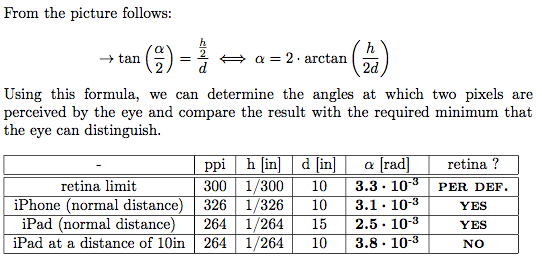For this answer, let's define that…
…the sharpness of a display is the ability to distinguish two distinct pixels.
#Retina displays
Retina displays
There is no industry standard for retina display, therefore I'll follow Apple's use of the word. The term retina display is relative, as the definition follows the human eyes's perception of a display's sharpness:
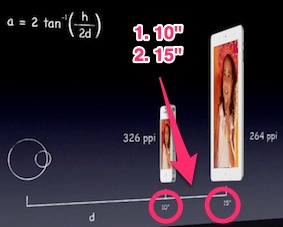
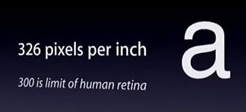
The second picture means "300 ppi is the limit of the human retina at a distance of 10 inch"!
While the iPhone 4S is commonly used at a distance of about 10 inches to the eye, the iPad will be used at a larger distance - e.g. 15 inches. Therefore, the iPad can have a similar reception by the eye even though the pixel density is lower.
Physical background of 'retina'
#Physical background of 'retina' WhatWhat does the formula mean? Let alpha be the angle at which the human retina will see two distinct pixels. d is the perpendicular distance to the display surface. h is the distance between two district pixels in one dimension.
Hence, we get:
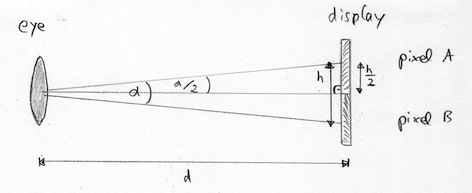
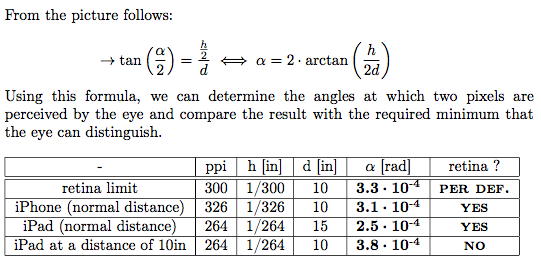
As you can see in the table, the minimum angle at which the human eye can distinguish two pixels is larger than what it can see for both on the iPhone and the new iPad - at normal distances.
The perception of distinct pixels with the new iPad is even better than with the iPhone 4S. Apple is being fully reasonable when calling the iPad's display a retina display.
No other tablet can compete in similar measures for PPI and display size of the iPad. It's even sharper then the iPhone in normal use! It's the sharpest display on the market.
Of course, this assumption is based on the fact that the displays are able to display any two pixels that are next to each other - which @checksum has pointed out in a comment.
#Competitors
Competitors
As mentioned in this answer, there are competitors with higher pixel densities, but not at the display size of the iPad 4G (9.7''). Furthermore, it's not clear to me if they are able to display each unique pixel like it IPS displays used by Apple can.

